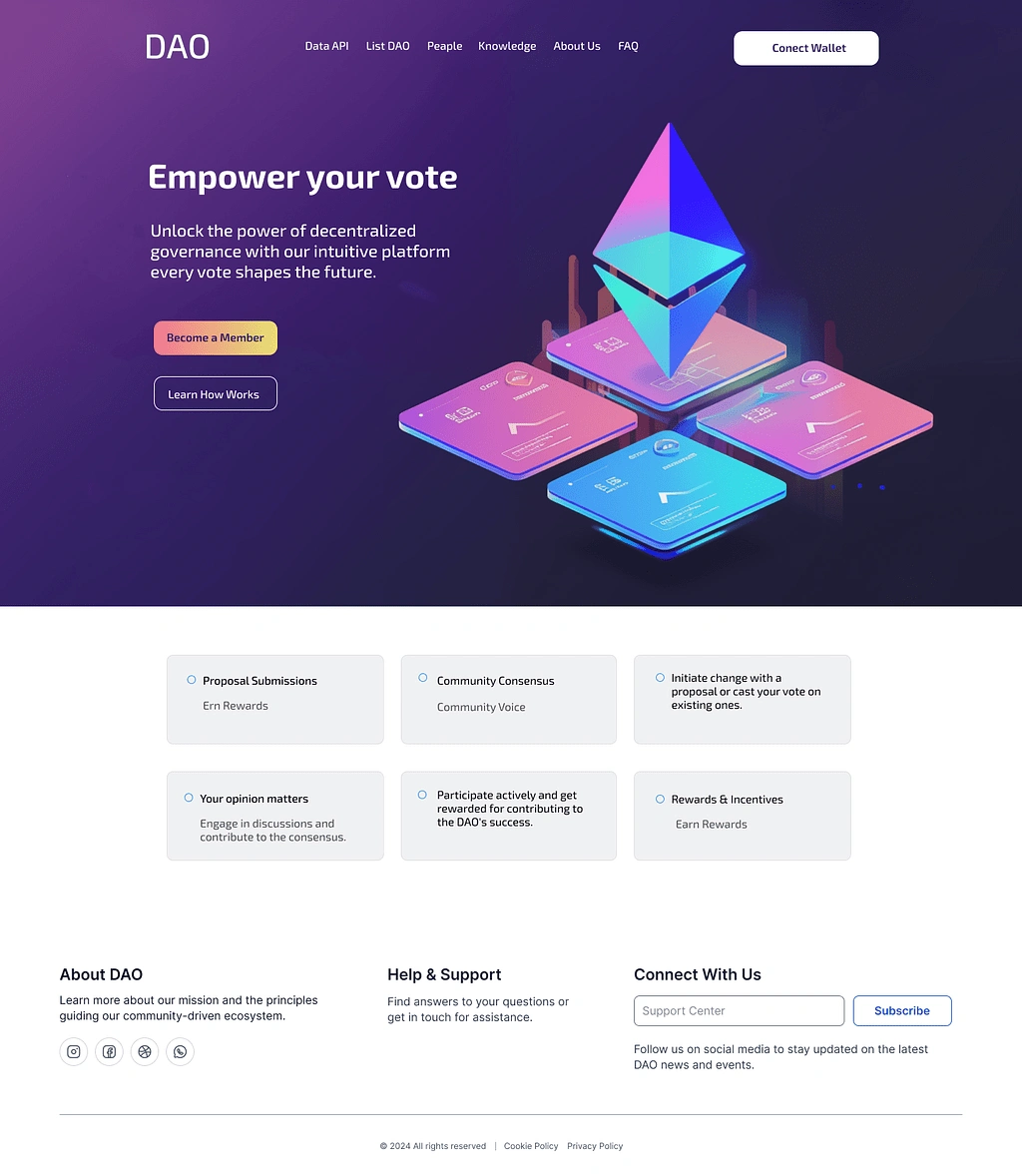DAO for Decentralized Venture Capital

1. Structure and Governance
Smart Contracts: The rules of the DAO are encoded into smart contracts, which automatically execute decisions based on predefined conditions.
Governance Tokens: DAO members hold governance tokens that represent voting power. The more tokens a member holds, the more influence they have in decision-making.
Proposals and Voting: Members can submit proposals (e.g., funding a project, changing protocol rules), and token holders vote on them. Voting results are transparently recorded on the blockchain, ensuring accountability.
Decentralized Management: The absence of a centralized authority means decisions are made by the community, with the organization managed collectively.
2. Key Components of a DAO
Treasury Management: DAOs often manage a shared treasury funded by its members or external investors. The smart contracts control how funds are allocated and ensure that spending decisions are made through collective voting.
Autonomy: DAOs operate autonomously, with smart contracts executing decisions based on the votes of its members, without needing human intervention.
Transparency and Security: Every action within the DAO is recorded on the blockchain, ensuring full transparency. However, strong security measures like smart contract audits are essential to protect the DAO from malicious actors or vulnerabilities.
3. Types of DAOs
Investment DAOs: These DAOs pool funds from members to invest in startups, projects, or other assets. Members vote on investment decisions and share in the returns.
Protocol DAOs: Many DeFi projects (e.g., Uniswap, Aave) use DAOs to govern changes to the protocol. Token holders vote on updates to the platform, such as fee changes or new feature implementations.
Service DAOs: These DAOs focus on providing decentralized services, like consulting, development, or marketing. Members collaborate and share profits, with governance determining project focus and resource allocation.
Social/Charity DAOs: Focused on social causes, these DAOs allow members to pool resources to support philanthropic or social initiatives, with collective decision-making on where funds go.
4. Key Benefits of DAOs
Decentralization: Power is distributed among community members, reducing risks of corruption or centralized control.
Transparency: All transactions and decisions are publicly verifiable on the blockchain.
Global Accessibility: DAOs can be accessed by anyone with an internet connection, allowing for global participation.
Efficiency: Automated governance through smart contracts speeds up decision-making and removes intermediaries.
5. Challenges of DAOs
Coordination and Participation: Getting token holders to participate in governance can be a challenge, especially if voting incentives are not clearly aligned with the long-term success of the DAO.
Security Risks: Vulnerabilities in smart contracts can expose DAOs to hacking or exploitation, which makes thorough smart contract audits and security measures crucial.
Legal and Regulatory Uncertainty: DAOs exist in a gray area when it comes to legal recognition, and there are ongoing discussions about how they fit into existing regulatory frameworks.
In summary, DAOs offer a new way to organize and manage collective ventures through blockchain technology, creating decentralized, transparent, and autonomous organizations.
Like this project
0
Posted Sep 14, 2024
A DAO (Decentralized Autonomous Organization) is a blockchain-based organization governed by code rather than a traditional centralized structure.






